


“Καθώς ένα πρωί ο Γκρέγκορ Σάμσα ξύπνησε από τα ανήσυχα όνειρά του βρήκε τον εαυτό του στο κρεβάτι μεταμορφωμένον σ’ ένα γιγάντιο έντομο…”
Franz Kafka, Η Μεταμόρφωση
Σαν σήμερα, 3 Ιουνίου 1924, πέθαινε σε ηλικία 40 ετών και παντελώς άγνωστος ενόσω ζούσε ο Franz Kafka,. Θεωρείται απο τους σπουδαιότερους συγγραφείς του 20ου αιώνα. Τα έργα του – “Η Μεταμόρφωση”, “Η Δίκη”, “Το Κάστρο”…- είναι γεμάτα με αρχέτυπα αλλοτρίωσης, φυσικής και πνευματικής βιαιότητας, γραφειοκρατικούς λαβύρινθους, φοβερές αναζητήσεις και μυστικιστικές μεταμορφώσεις.
“Πέθανε σ’ ένα δέντρο απ’ όπου δεν μπορούσε να κατέβει. “Έλα κάτω!” του φώναζαν. “Έλα κάτω! Έλα κάτω!” Σιωπή γέμισε τη νύχτα κι η νύχτα γέμισε τη σιωπή, ενώ περίμεναν να μιλήσει ο Κάφκα. “Δεν μπορώ”, είπε τελικά μ’ έναν τόνο που έκρυβε πόθο. “Γιατί;” φώναξαν. Αστέρια χύθηκαν στον μαύρο ουρανό. “Γιατί τότε θα πάψετε να ψάχνετε για μένα”. Οι άνθρωποι κούνησαν το κεφάλι και ψιθύρισαν μεταξύ τους. Αγκαλιάστηκαν και χάιδεψαν τα μαλλιά των παιδιών τους. Έβγαλαν τα καπέλα τους και τα σήκωσαν προς τον μικρόσωμο, ασθενικό άνθρωπο με τ’ αυτιά λες κάποιου παράξενου ζώου, που με το μαύρο βελούδινο κοστούμι του καθόταν στο σκοτεινό δέντρο. Ύστερα, γύρισαν και ξεκίνησαν κάτω από το φύλλωμα των δέντρων για να πάνε σπίτι. Τα παιδιά καθισμένα στους ώμους των πατεράδων τους, νυσταγμένα που τα πήραν να δουν αυτόν που έγραφε τα βιβλία του στη φλούδα του δέντρου από το οποίο αρνιότανε να κατέβει. Με το ευαίσθητο, ωραίο, δυσανάγνωστο γράψιμό του. Και τα θαύμαζαν εκείνα τα βιβλία και θαύμαζαν τη θέληση και την αντοχή του. Στο κάτω κάτω, ποιός δεν θέλει να να κάνει θέαμα την μοναξιά του; Μία μία οι οικογένειες σκορπίστηκαν λέγοντας καληνύχτα και σφίγγοντας τα χέρια, ευγνώμονες ξαφνικά για την παρέα των γειτόνων. Έκλεισαν οι πόρτες των στη θαλπωρή των σπιτιών. Κεριά άναψαν στα παράθυρα. Πέρα μακριά, στη φωλιά του πάνω στο δέντρο, ο Κάφκα τ’ άκουγε όλα: το θρόισμα των ρούχων καθώς έπεφταν στο πάτωμα ή το φτερούγισμα των χειλιών σε γυμνούς ώμους, κρεβάτια να τρίζουν με το βάρος της τρυφερότητας. Όλα πιάνονταν στα ντελικάτα, μυτερά κογχύλια των αυτιών του και στριφογύριζαν σαν μπάλες στη μεγάλη αίθουσα του μυαλού του.
Εκείνη τη νύχτα φύσηξε ένα παγωμένος αγέρας. Όταν ξύπνησαν, τα παιδιά πήγαν στο παράθυρο και είδαν τον κόσμο σκεπασμένο με πάγο. Ένα παιδί, το πιο μικρό, στρίγγλισε χαρούμενο κι η φωνή της έσκισε τη σιωπή και σαν έκρηξη θρυμμάτισε τον πάγο μιας γιγαντιαίας βελανιδιάς. Ο κόσμος έλαμψε.
Τον βρήκαν στο χώμα, παγωμένον σαν πουλάκι. Λένε πως όταν έβαλαν τ’ αυτιά τους στα κογχύλια των αυτιών του μπορούσαν ν’ ακούσουν τους εαυτούς τους”.
Nicole Krauss, The History of Love
“As Gregor Samsa awoke one morning from uneasy dreams he found himself transformed in his bed into a gigantic insect…”
Franz Kafka, The Metamorphosis
On a day like today, 3 June 1924, Franz Kafka died aged 40, completely unknown while he lived. He is now regarded by critics as one of the most influential authors of the 20th century. Most of his works, such as “Die Verwandlung” (“The Metamorphosis”), Der Process (The Trial), and Das Schloss (The Castle), are filled with the themes and archetypes of alienation, physical and psychological brutality, parent–child conflict, characters on a terrifying quest, labyrinths of bureaucracy, and mystical transformations.
“He died in a tree from which he wouldn’t come down. “Come down!” they cried to him. “Come down! Come down!” Silence filled the night, and the night filled the silence, while they waited for Kafka to speak. “I can’t,” he finally said, with a note of wistfulness. “Why?” they cried. Stars spilled across the black sky. “Because then you’ll stop asking for me.” The people whispered and nodded among themselves. They put their arms around each other, and touched their children’s hair. They took off their hats and raised them to the small, sickly man with the ears of a strange animal, sitting in his black velvet suit in the dark tree. Then they turned and started for home under the canopy of leaves. Children were carried on their fathers’ shoulders, sleepy from having been taken to see who wrote his books on pieces of bark he tore off the tree from which he refused to come down. In his delicate, beautiful, illegible handwriting. And they admired those books, and they admired his will and stamina. After all: who doesn’t wish to make a spectacle of his loneliness? One by one families broke off with a good night and a squeeze of the hands, suddenly grateful for the company of neighbors. Doors closed to warm houses. Candles were lit in windows. Far off, in his perch in the trees , Kafka listened to it all: the rustle of the clothes being dropped to the floor, or lips fluttering along naked shoulders, beds creaking along the weight of tenderness. It all caught in the delicate pointed shells of his ears and rolled like pinballs through the great hall of his mind.
That night a freezing wind blew in. When the children wake up, they went to the window and found the world encased in ice. One child, the smallest, shrieked out in delight and her cry tore through the silence and exploded the ice of a giant oak tree. The world shone.
They found him frozen on the ground like a bird. It’s said that when they put their ears to the shell of his ears, they could hear themselves.”
* Το άρθρο απηχεί τις απόψεις του συντάκτη του.
The article expresses the views of the author
iPorta.gr

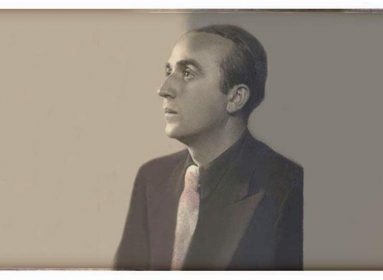




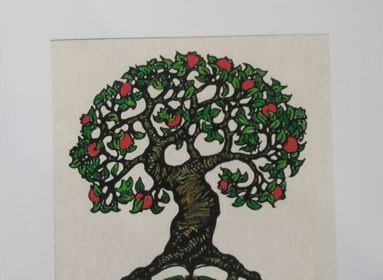
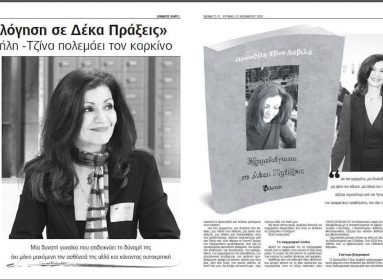












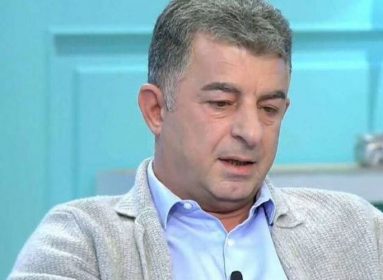
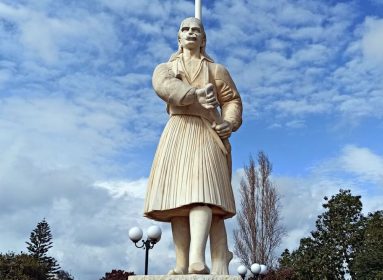
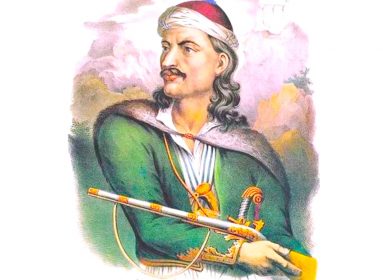
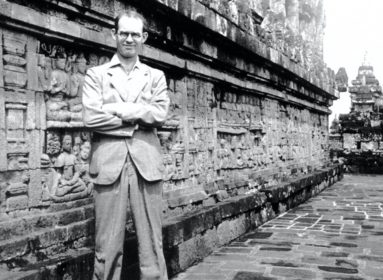
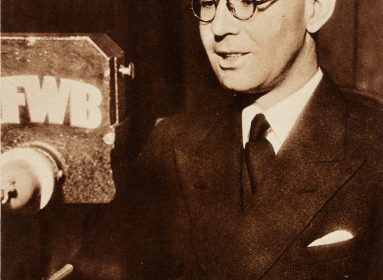




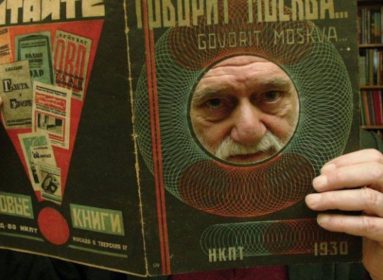

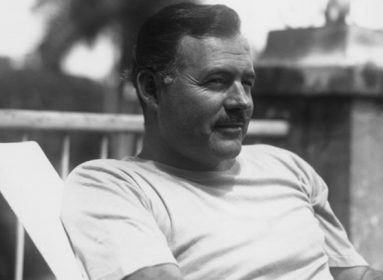


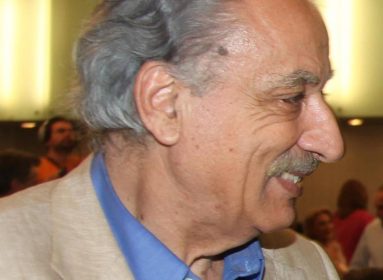





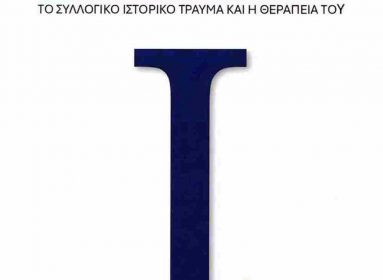
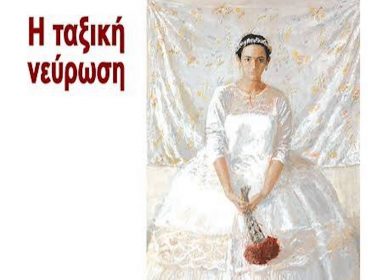



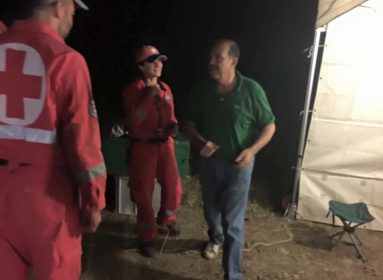



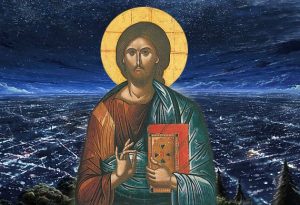


 Το σκίτσο είναι του Βαγγέλη Παυλίδη
Το σκίτσο είναι του Βαγγέλη Παυλίδη

 Στηρίξτε-Ενισχύστε την iΠόρτα με τη δική σας χορηγία…
Στηρίξτε-Ενισχύστε την iΠόρτα με τη δική σας χορηγία…